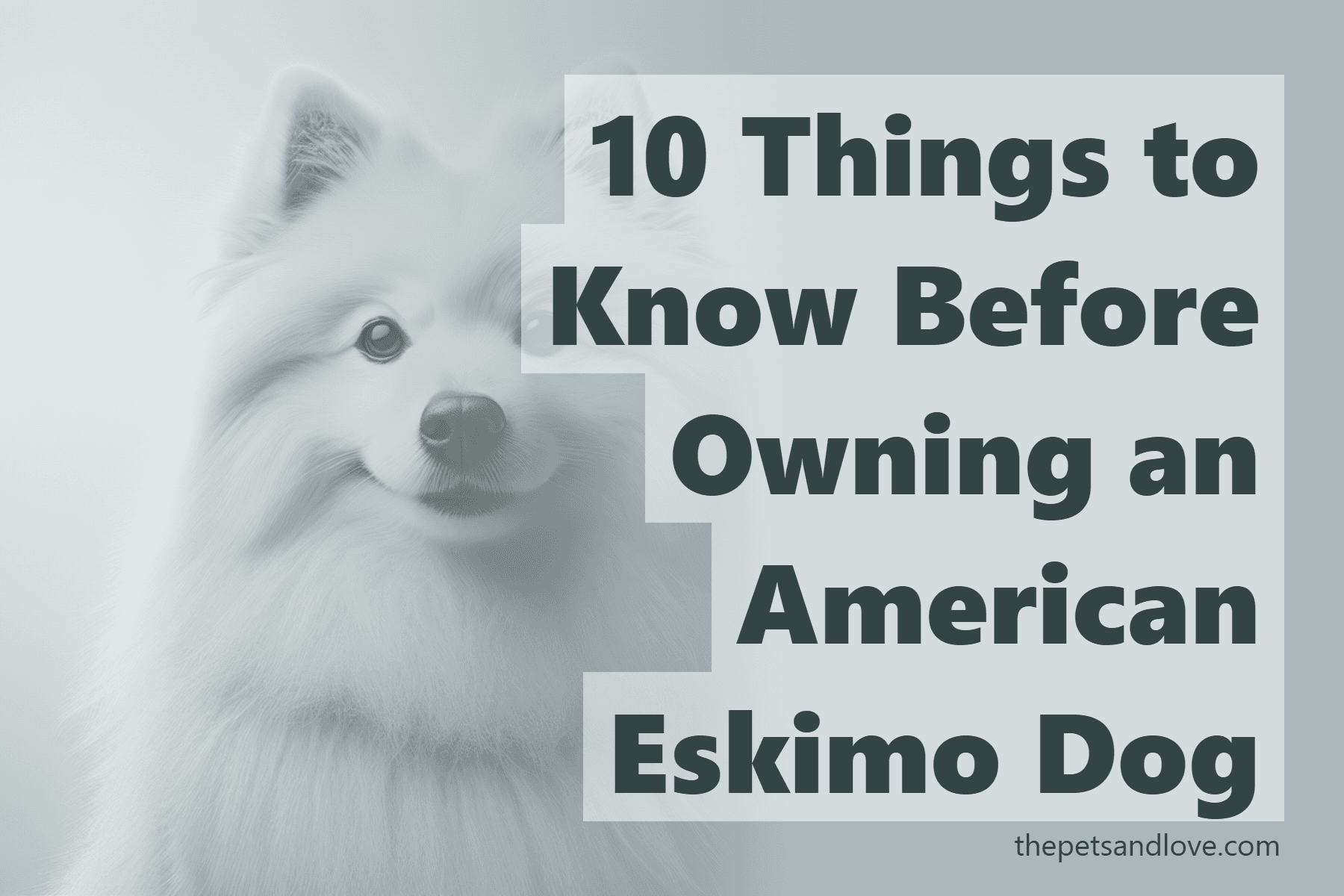10 Things to Know Before Owning an American Eskimo Dog

If you’ve ever seen a fluffy white dog prancing like it owns the world, there’s a good chance it was an American Eskimo Dog — or “Eskie” for short. These bright, bouncy pups are full of personality, and they’ve got the brains and beauty to match. Over the years, we’ve spent time with a few Eskies (especially through fostering), and they leave quite the impression — in both good and challenging ways.
Here’s what you should know if you’re thinking of welcoming one into your home.
They Come in Three Sizes, But All Bring Big Personality
Eskie dogs come in toy (9–12"), miniature (12–15"), and standard (15–19") sizes. No matter the size, they all have the same signature look: a wedge-shaped head, perky triangular ears, a thick white coat, and a plume-like tail that curls over the back.
Despite their size, even the toy version has a big-dog energy. They’re alert, lively, and confident — not lapdogs who want to doze all day.
They Were Once Tightrope-Walking Circus Stars
Yep, really! Eskies were famous in American circuses during the early 20th century. Their smarts and show-stopping looks made them perfect for performing tricks — including walking tightropes. That intelligence is still very much part of who they are today, which means they need mental stimulation as much as physical exercise.
Eager to Please, but Need Consistent Training
Eskies are fast learners and thrive with positive reinforcement. We’ve found they pick up commands quickly, especially when training feels like a game. But they also get bored easily and can be a bit independent — so consistency is key. Keep sessions short, fun, and rewarding.
They shine in canine sports like agility, obedience, tricks, and even herding. If you enjoy training and bonding through activities, you’ll love working with an Eskie.
Built for the Cold, but Not for Solitude
With their thick double coat, Eskies love snow and cold temperatures. But despite looking like outdoor dogs, they really want to be where their people are. They’re highly social and can develop separation anxiety if left alone too long. We’ve seen Eskies get destructive from boredom or loneliness — chewing, barking, and pacing.
If you’re away from home often, this breed might not be the best fit unless you have a solid plan for companionship and enrichment.
Friendly, but a Bit Cautious
Eskies are affectionate with their families and generally good with kids, especially when raised together. They’re playful, gentle, and love being part of the action. That said, their high energy can overwhelm very small children, so supervision is important.
Around strangers, they tend to be reserved — not aggressive, just watchful. That makes them decent watchdogs, though their bark is bigger than their bite.
They can also live peacefully with other dogs and cats if socialized early. Small pets like birds or reptiles? Not so much — that Nordic prey drive can kick in.
Exercise and Mental Stimulation Are Non-Negotiable
An under-exercised Eskie is a handful. They need daily walks, playtime, and mental challenges like puzzle toys or training games. Dog parks can be great for socialization, but they also love one-on-one time with their people.
If your household is active and enjoys including the dog in everything — hikes, games, errands — an Eskie will fit right in.
Grooming: Manageable, But Regular
That glorious white coat? It comes with upkeep. While Eskie fur has natural oils that help repel dirt (and they don’t usually smell doggy), they do shed — especially during seasonal changes.
We recommend brushing at least a few times a week to manage loose hair and prevent matting. Baths every month or so are plenty unless they roll in something gross. Don’t forget the basics: ear cleaning, nail trims, and dental care.
Health and Lifespan
Eskies typically live 12–15 years, and with good care, they stay spry well into their senior years. Some common health concerns include:
- Hip dysplasia
- Progressive retinal atrophy
- Cataracts
- Legg-Calvé-Perthes disease
- Ear infections
Regular vet visits, a healthy diet, and consistent exercise can go a long way in keeping your Eskie thriving.
Final Thoughts
The American Eskimo Dog is a joyful mix of brains, energy, and heart. They’re not for everyone — especially not for people who want a low-maintenance or quiet companion. But if you’re ready for a dog who keeps you on your toes (and makes you laugh daily), an Eskie might be your perfect match.
Just be prepared: they’ll steal your heart — and maybe your socks.
Take the Quiz
Is an American Eskimo Dog Right for You?
The American Eskimo Dog is a playful and intelligent breed known for its striking white coat and friendly nature. Discover if this lively and affectionate companion is the perfect fit for your home by taking our quiz! Answer all questions below to discover your compatibility score and get personalized insights.
Question #1: What is the main reason you want a dog?
Question #2: How active is your lifestyle?
Question #3: How much time can you dedicate to your dog daily?
Question #4: What best describes your home environment?
Question #5: What size dog do you prefer?
Question #6: What personality traits do you want in your dog?
Question #7: How much grooming can you handle?
Question #8: Who else lives with the dog?
Question #9: Is this your first dog?
Please answer all 9 questions to see your results
